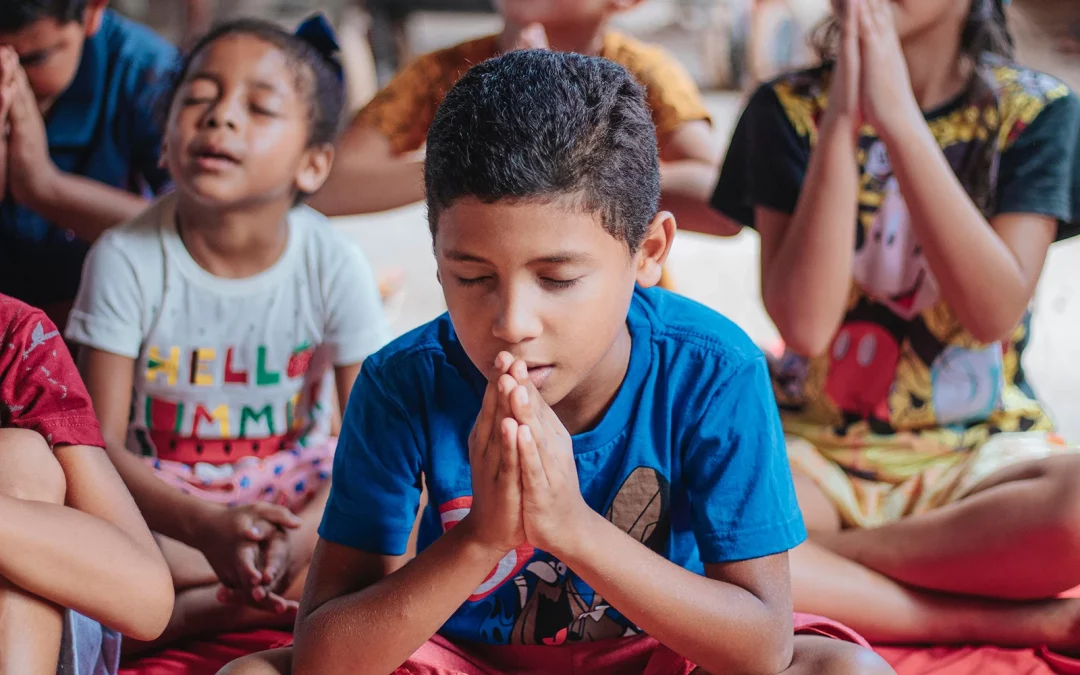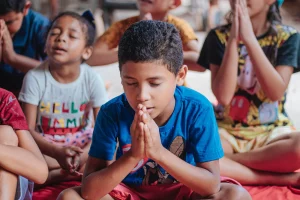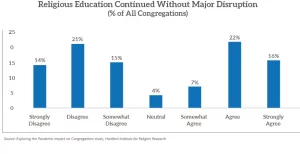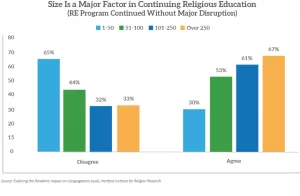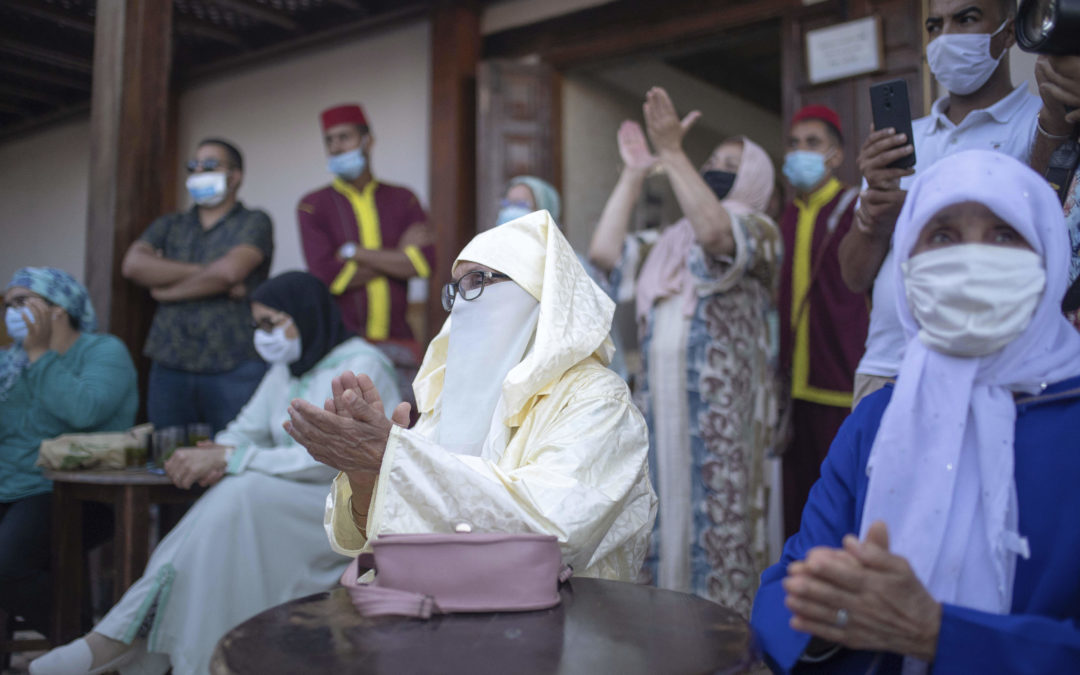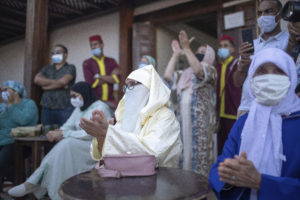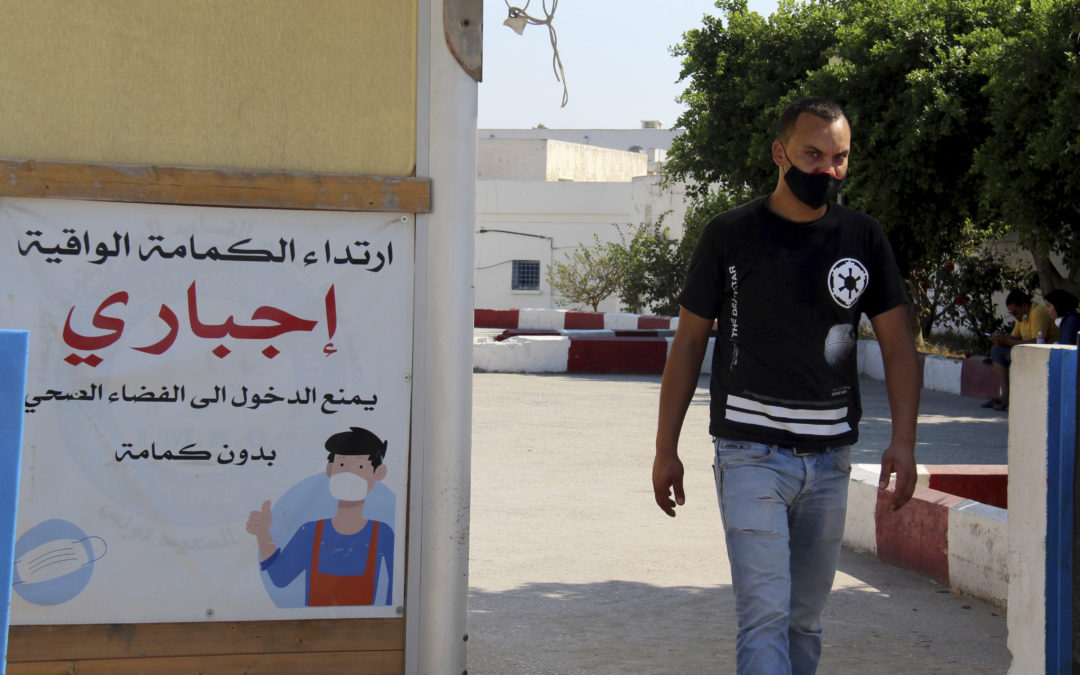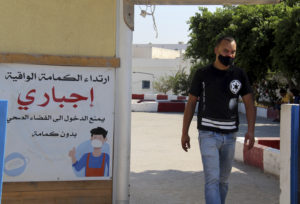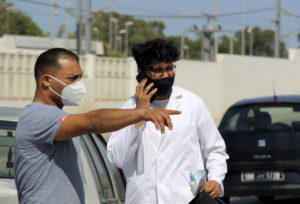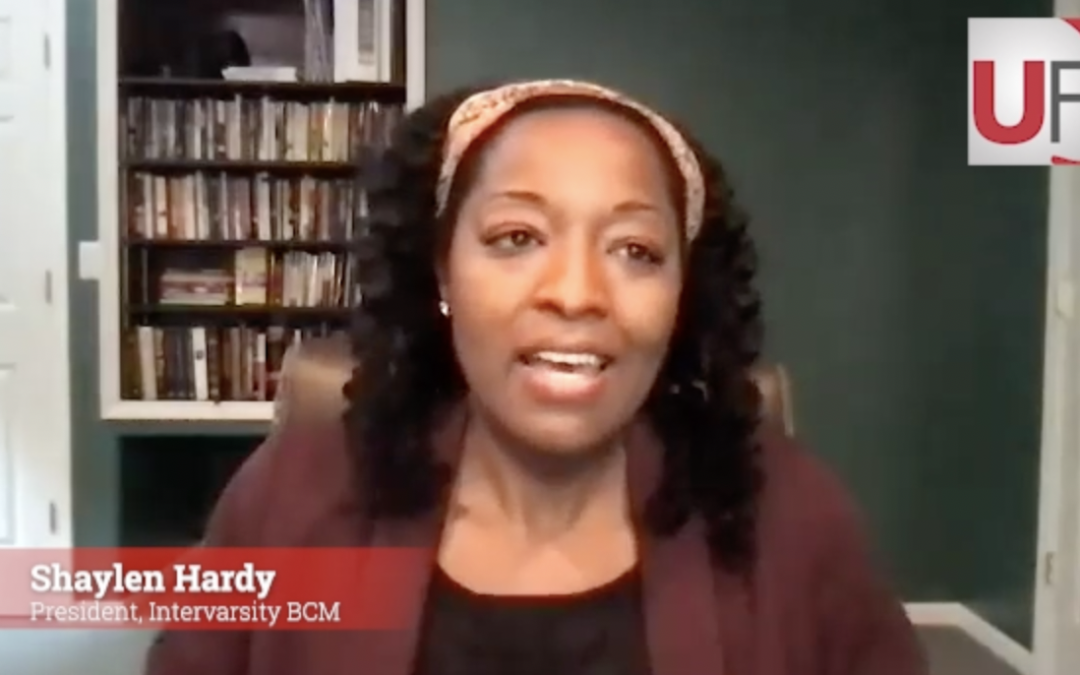Last year the pandemic disrupted the world as we know it–leaving most college students grappling with how to live in a world without access to community, coupled with the pressure of continuing their education.
For Black students, the exposure of racism locally, nationally, and globally made the Great Disruption even more difficult. The nation witnessed the deaths of Black men and women at the hands of law enforcement and vigilantes while being forced to quarantine. White supremacy and racist rhetoric were often unveiled from the mouths of people who identified as Christian, which left many students wrestling with their faith on multiple fronts without the normal practices and people to help encourage them.
But in the midst of the turmoil and testing, leaders of campus ministries sought to support Black students. I had the opportunity to interview Shaylen Hardy, the President of Intervarsity’s Black Campus Ministries, about her experiences and insight leading one of the largest networks of Black campus ministries through the pandemic. Some highlights of our conversation are below, and the full interview can be viewed above and on UrbanFaith.com!
The interview has been edited for clarity.
Allen:
I’ll open up our first question, Shaylen. From your perspective, what are some of the challenges that you have seen Black students face in the last year as they’ve lived through this pandemic and the social unrest in our country?
Shaylen:
Yeah, I mean, I think you named some of the major things that they’re facing. I think another thing with Generation Z is mental health issues. We already knew coming into this year, or pre-pandemic, that Generation Z experiences significantly higher amounts of mental health issues. So as you think about it, some of the racial reckoning that we’re seeing in the nation, plus the weight of the pandemic, are actually just compounding the mental health issues that those students were experiencing already. So some of the ways in which they may have negotiated or worked through their mental health challenges, like being with friends, or engaging in activities that are life giving to them, were taken away instantly. So, the challenges of coping with mental health complications are something that we’re seeing.
And also their academic coursework. I mean, many of us remember getting up in the morning, going to class, and just the weight of that. But there’s a different [pressure] when you have to be virtual and on Zoom calls all day long. They are expected to retain everything that they’re hearing without the personal interaction with their teachers and other students, and just the fatigue. Many of us working via Zoom for this last year were also experiencing fatigue, but we’re not being tested week in and week out on what we heard during those calls.
Allen:
That makes a lot of sense. A follow-up question that I have is, how are the students able to gather together in life giving ways with organizations like Intervarsity, or with one another? How, in the midst of being virtual, are they finding community?
Shaylen:
Yeah, I think part of it is being somewhat creative. And so we recognize that one of our only ways of interacting is virtually. And we know that we’re inviting them to come back into a virtual space after they’ve spent most of their day on it. But we think through developing community in a couple of different ways.
Yes, we still do our Bible study, and yes, we still have prayer meetings and things like that. But we host virtual game nights where we invite students to come play Spades or stUno, and we have virtual movie nights where we play a movie and students can chat about what they’re experiencing. So we think that community is still very, very vital to their mental, emotional, and spiritual well-being. We just have to be creative in how we use virtual mechanisms to help build that community so that when we are able to go back to the new normal, they can pick up where they left off with one another
Allen:
Yeah, that makes a lot of sense. I think that hybrid is kind of the future of the world at this point, right? Like, things are not going back to the way that they were. You just mentioned how people are using these hybrid mediums in order to engage in order to strengthen themselves and their faith. What are some of the ways that you’ve seen students really be able to feed their faith or keep themselves encouraged?
Shaylen:
I think part of it is we do small groups on different campuses and across the country, and we have had a national virtual conference for students to engage. I think one of the things that we’re learning about Generation Z is that because they have so much content available to them, just showing them a video isn’t enough. They’re like, help me figure out what I’m supposed to do with what I just heard. And so we’ve actually been able to have a couple breakout sessions [that are] conversations about what’s happening in the world and what Jesus has to say about justice. And students are like, “Yeah, that was great.” And then we have to follow up by sharing the next two steps to take if you want to figure out how to be more active and engage in what’s happening in the world. So I think part of it is yes, content. But if you think about it, this generation has more access to more content than anyone has ever had. So what we’re seeing is this generation is like, “Yeah, give me content. And when you give it to me, make sure it looks good, but also help me figure out what you want me to do with what I just heard.”
Allen:
Wow, that’s huge. The application part makes a big difference for them. Now, the other thing that has been impacting us is not just a pandemic, but also this racial unrest. And I’m really curious, how have you been hearing Black students talk about this deal with this with their faith? How is the racial unrest been impacting them in particular in these times?
Shaylen:
I think in some ways, it’s connected to some of the mental health issues. Like, it is hard for me to show up because of all of the trauma that I’m experiencing, and so that is compounded with that mental health tension, and then I have to show up and engage academically. But also, I have to be social and be competent in my interaction with my classmates. So it’s like they’re having to pull it all together to be okay, when they don’t feel okay. So that’s definitely a tension that they’re experiencing.
I will say that we’ve tried to have conversations to help students think through what Jesus has to say about what is happening right now. And I think that a lot of people who would challenge the Christian faith or the Christian perspective will point to broader White evangelicalism of: “That is why Jesus cannot be trusted.” And so some of our students are trying to wrestle with, if this is the fruit [meaning racism], and they say they love Jesus,, can this be compatible with me following Jesus?
Part of what we’ve had to do is actually expose some of the lies of White evangelicalism. And yes, you can fully follow Jesus as a Black person, as a nAfrican American, as an African [person]. All of those things are compatible with Jesus. But in some ways, I think in order to make that case, we’ve had to k pull back the curtain and say things like, “These are the lies that have been intertwined with American Christianity, and this is why Jesus is trustworthy.” On the one hand, [we] also speak to what Jesus has to say about the Black experience. And I think that there have been moments when [for Black students and myself] I see what’s happening in the world and I live as a Black [person] experiencing it [and], I’m like, “Lord, when will you show up?”
Allen:
That makes a lot of sense. What are some of the other ways that you’re coming alongside these students or ministering to them with Intervarsity? Or even the wider campuses? I know that you guys do work, not just with students, but with folks who are supporting students on campuses. So what have you all been doing in the midst of all this to support campuses?
Shaylen:
I think I’m connected to some of our spaces. So we’ve had a psychologist come in and talk about racial trauma, sharing her insights. And then we had breakout rooms where students were able to discuss what they were experiencing. And then from that point, we have prayer ministry rooms. So we’re getting into spaces where students can actually share their story and not just about what they have been experiencing, but also connect to prayer ministry.
And similarly, at our virtual student conference we had over 300 students and about 10 faculty join us. So we had a conversation and then invited people into prayer ministry rooms. One of the things that was really surprising to me is that I felt like we recruited really well for our prayer ministry rooms, but we were continually having to call in reinforcements because the need and the hunger for prayer was so strong. In a virtual space, we had a Zoom room with music playing [where people could wait for a minister to be available]. There was one point, when I was recruiting people in there who jumped on 20 minutes after we started because they needed people. And there were students just waiting quietly in the prayer room until somebody was available. I think that that was such a stark picture of how we categorize youth often, like they aren’t interested in spiritual things or they don’t love Jesus. [But] they are hungry for what Jesus wants to give them. These students sat through an hour and a half or two hours of programming. And they are sitting in a Zoom call, listening to worship music because they want somebody to pray with them.
I think just giving those opportunities for people to have encounters with the Lord [is important]. One of the things that we’re learning about Generation Z is that they want access to experts. I think millennials want to be the experts. Generation Z is like, “Just connect me with somebody who knows what they’re doing.” I don’t know that we anticipated this or actually know how it would work virtually. But offering that prayer ministry space has been super significant for students.
And then I think the second piece that I mentioned earlier, is just opportunities for helping them figure out how to actually do it– how to apply the message to their lives.
Allen
So that provides a really great segue for another question I have, especially for a lot of the folks in our audience. We’re touching people who are Christians and especially churches all over the place. And it sounds like there’s a space for the church and an opportunity to reach some of these students. What kind of roles do you think the church can offer to these students as they’re dealing with things on campus and going through this this time?
Shaylen
I think one of the things that as I’ve been working on and trying to identify is, how do we actually care for Black college students, and what are the support structures that exist on college campuses? For HBCUs, there’s much more of a community of people already there who can pour into you and to develop you. For students who end up at predominantly White institutions, that looks quite different.
[On HBCU campuses] there are often support structures and Black professionals who can help pour into you in the same way you were used to in high school. It sticks out to me that Generation Z wants to be developed. They want people who know what they’re doing to guide them.But on PWI campuses, it is very hard to have access to that. And that’s compounded. Most PWIs are surrounded by churches. White churches have money, so they surround the campus. But in most campus contexts, Black churches are about 10 to 15 minutes away from most campuses. And then basically, you’re saying for a Black college student to be connected to community, or to be connected to an older people who could pour into them, pray for them, and care for them, they have to find a way to get there.
And so I think that my question would be, are there ways that Black church communities can be intentional about supporting Black students on college campuses? Now that’s a little bit complicated due to COVID because we just don’t know how accessible campuses will be, right? But as they open [there are opportunities].
My church has been thinking through things like, how do we care more for Black college students? And so I [gave them suggestions’ and we actually started partnering with a student organization. We attended their meeting every so often and brought a whole bunch of food–wings, pizza.e would let them do their meeting, then do an icebreaker and ask if anyone needed prayer.
And then we ended up having a college day later in the semester, and we had never had so many college students at our church. I want to say that over 100 college students came over to the event. And part of it was because they saw us being active on campus–they saw us caring about them. We didn’t do a full church service. That’s something we could consider down the road. But basically, we were saying, “We just want to know what you’re going through.” We want to support you.
Churches might think that they have to have a robust strategy for recruiting for building a whole separate ministry, but I don’t think that they need to do all that. Are there two or three students that somebody in your congregation has trust with? If the answer is yes, ask them, or, for Generation Z, tell them how you want to support them. Say, “Hey, I know that I have meetings on campus. Would it be okay, if our church sponsors dinner for you at one meeting per month? We would just love to meet them and see if there’s a way for us to pray for them.” And then figure out ways that you can invite them to partner with you for something that you’re doing in the community or invite them to church. We don’t have to have a whole robust strategy. It can really start off with relationships.
Allen
Wow, I love that relationship piece. And just allowing us to again build relationships as churches with students and be able to support them where they are. So my last question is, with all of that’s going on, are there other people who may be around campuses who can continue to make an impact with Gen Z?
Shaylen
Yeah, so we have a ministry in a university that’s targeted towards Black graduate students and Black faculty. It is called Black Scholars and Professionals, and they recently had a prayer call with Black faculty across the country. I want to say there were 45 faculty who jumped on [the call]. art of that was for encouragement and to tell testimonies of where they’re at and to pray together.
As we think about faculty, they are carrying tremendous weight. There is the leadership that they already have on campus, but often for Black faculty, they have the unwritten roles of caring for Black students and speaking for diversity issues. And so they are carrying tremendous weights. One of the things that we try to do is to see how we can care for this spiritual life and help a faculty. As we think about wanting to see transformation on campus, students are there for four to five years, but faculty actually have significant influence on both students [and campuses]. If we can care for the spiritual life of faculty, they have access into [students’] lives in ways that we don’t.
We’re trying to think through what faculty need so we can be present to their needs, but also for prayer and fellowship. On the student side of things, we have a point person on most campuses who can provide discipleship and engagement. But also, we’ve been trying to kind of brainstorm how to do this work, even if we don’t have a staff available.
The reality is, for the amount of Black students who are on college campuses across the U.S., we don’t now, nor will we ever, have enough campus staff to reach all of them. How can we actually empower students to reach other students? How can we empower volunteers to reach other students? We are trying to be creative [about] how to partner churches, alumni, people in the community and students to do the work of reaching other people on campus.
Allen
Absolutely. I thank you for naming just the needs of the faculty because they don’t get thought about a lot. Is there anything else you wanted to just say?
Shaylen
So, I would say that being in college is a really, really important time. You’re figuring out who you are, what you believe, and also what you’re going to be about. A lot of the decisions that you make in college shape who you are for the next 40 to 50 years. One of the difficult parts about college is that those decisions are made when you’re the most distant you’ve ever been from your spiritual community and [broader] community. So I want to encourage college students to look for people who can support them on the journey, because it’s significant– these are important decisions. Ask your parents and pastors who they know in the school or college town. If they don’t know anyone, reach out to different networks to try to figure out who in your community will support you.
I think about my local church community when I moved into the town. They were so extremely helpful people wanting to pour into me–people wanting to know what I was passionate about. Generation Z, doesn’t like the idea of taking the risk and going to somebody’s church or a place you don’t know. Having to socially interact with them in person might seem very, very risky. But I think thatB the benefit will far outweigh the risk. That’s where you can have intergenerational fellowship. I think you will get much more than you are giving, and it will be worth much more than you risk. Ask your spiritual community where you are, if there’s any connections to where you’re going, and then seek those out. And if they aren’t a good fit for you, I promise there’s someone in the community who can help you develop into who the Lord is calling you to be.
Allen
Well, thank you so much for this interview, Shaylen. It has been fantastic. It’s awesome work that the Intervarsity Black Campus Ministries is doing all around the country. You guys are impacting so many students, faculty, and grad students. It’s wonderful to be with you again. And I hope that people are able to take something from this. I know that I’ve learned a lot about what’s going on on campuses, especially in the pandemic with racial unrest. God bless you in this work.
Shaylen
Thank you. And lastly, I’ll just say, we are on social media if people kind of want to see some of the things that we’re doing. It’s under Black Campus Ministries on Instagram, and we’re on Facebook. If you want more information, you can check out our website at BCM.intervarsity.org

 Raising children is not an easy task! There are many articles, friends, mom tips, and overwhelming support from mom groups that make our jobs a lot easier. From the first day I found out I was going to be a mom back in 2010, I knew that I had support. Whatever question or concern I had, all I had to do was ask my mom or google and there it was: an instant answer! But in early 2020 this reality changed for me and many parents across the world. A devastating pandemic reared its ugly head and completely shut the world down without warning.
Raising children is not an easy task! There are many articles, friends, mom tips, and overwhelming support from mom groups that make our jobs a lot easier. From the first day I found out I was going to be a mom back in 2010, I knew that I had support. Whatever question or concern I had, all I had to do was ask my mom or google and there it was: an instant answer! But in early 2020 this reality changed for me and many parents across the world. A devastating pandemic reared its ugly head and completely shut the world down without warning.
